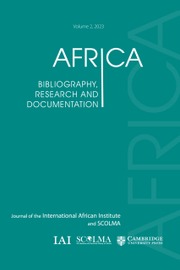This beautiful text, illustrated throughout with reproductions of covers of Mhudi and ‘woodcuts from the artist Cecil Skotnes [from] the Quagga Press edition of Mhudi published in 1977’ (xxi), presents a comprehensive assessment of contemporary critical issues arising in the study of the novel, Mhudi, by ‘foundational author’ Solomon Tshekedi Plaatje (134) in celebration of the centenary of its completion in 1920. The book contains an introduction by the editors, renowned Plaatje scholars Mokae and Willan, whose combined expertise in and familiarity with Plaatje’s entire oeuvre and this novel shine through; twelve end-noted chapters of the highest calibre, comprising one poem, criticism, and fiction; a bibliography of all editions of Mhudi, a list of contributors and an index. These lively and innovative readings will be most interesting to all scholars of Plaatje and southern African literature as they engage the multifarious critical concerns and enduring political questions raised within the pages of Mhudi.
Like Mhudi, this collection is a first of its kind, as recognized in its joint win in 2020 in the category Best Non-Fiction (Biography) at the South African National Institute of Humanities and Social Sciences Awards. The text presents a new way of presenting critical theory, using knowledges created in fiction, non-fiction and poetry as complementary if different discursive traditions. The book opens with a poem in Xhosa by Siza Nkosi-Mokhele, ‘Bra Sol Othandekayo.’ Every chapter comments on the prescience of Plaatje’s choice of fictive content for Mhudi in its enduring resonance and relevance, and, affirming Plaatje’s position as pioneer South African intellectual, committed cultural and word worker. Several chapters interrogate Plaatje’s innovations with literary form, genre and voice which extends the discussion of Mhudi as the first African novel in English. Willan’s chapter, ‘Mhudi’s genesis: the writing and publication of Mhudi’, explores the circumstances of the writing of the text, including significant edits introduced during the decade-long publication process which both dominated and curtailed much early scholarship on Mhudi. Zakes Mda’s chapter, ‘On writing historical fiction vs fictionalised history’, examines the ways in which the love story of Mhudi rewrites a colonial archive because it comprises African historiography of an aspect of African history, that of the vanquishment in 1830 of the Barolong by the Matabele and the repercussions of the ‘tribal succour of Europeans’ (139) of the remaining Barolong and the Batswana before the Boers turned on them nonetheless. Chris Thurman focuses on the absences and latent presences of British forces in Mhudi in his chapter, ‘“In front as at the rear”: black soldiers, white imperialism and Mhudi’.
Laurence Wright’s chapter, ‘“The glory of the silver trees”: Mhudi and the Union celebrations of 1910’, highlights the productive and generative capacity of the novel, with readings of Plaatje’s unique contributions in the development of South African literary symbols, signs and metaphorical resonances. Antje Krog, in ‘Comets, porcupine holes, chiefs and wagons: a complete interconnected universe in Mhudi’, highlights intertextual resonances between Mhudi and !Xam stories as well as Plaatje’s contemporary Thomas Mofolo’s Shaka. The politics of writing English in African culture both historically and contemporarily rather than Setswana or, as Doke spells it, Chwana, as noted by Pooe and Shole (157), is a prominent discussion point, as is the extent of Victorian and Romantic influences, as well as Plaatje’s potential uses of the epic and romantic. Bhekezizwe Peterson argues in ‘Reasoning creatively in Mhudi’ that Mhudi presents the idea of ‘modernities in world history’ (139) and comprises a new framework for critical reading which allows a speculative or imaginative aspect, generated within an African ideological expression. Peterson posits the hallmarks of an African critical historiography. Eileen Pooe and Shole J. Shole’s chapter, ‘Maropeng: on repatriating Mhudi as a Setswana novel’, explores the possibility of ‘linguacultural transfer’ (156) as translating Mhudi into Setswana through ‘phetsolelo’ and ‘transcreation’ (154) as a means of cultural repatriation. They argue that the novel was conceived in Setswana and should swell the Setswana cultural store.
Every chapter foregrounds the prescience of Plaatje’s focus on justice for land dispossession in Mhudi and its importance in all of Plaatje’s works. Lesego Malepe’s chapter ‘Sol Plaatje’s Mhudi and the issue of land in South Africa: past, present and future’, as well as Sabata-mpho Mokae’s compelling short story ‘When the bones call’, are particularly evocative of the long-standing effects of this policy. Willan’s ‘Mhudi and the critics’ is a welcome introduction and exploration for any scholars joining the discussion at this juncture. His dedication to Plaatje scholarship is inspiring.
‘Deferred hopes and dreams: a reflection of Plaatje’s dedication to Olive Ngwetsi’ by Karen Haire is a unique contribution as it situates Plaatje and his work as a father and husband within his own family, and also in relation to his own contemporary African American poet Langston Hughes; positing interconnections of blackness worldwide in a common cultural moment is bravely undertaken. Jenny Božena du Preez has the only chapter dedicated to the study of Plaatje’s depiction of gendered propensities in ‘Women’s solidarity in Mhudi’, which is a welcome intervention with unique ideas inspired by African American critical thinkers, Barbara Christian and bell hooks. All of these excellent chapters will galvanise Plaatje scholars to new heights in turn.


